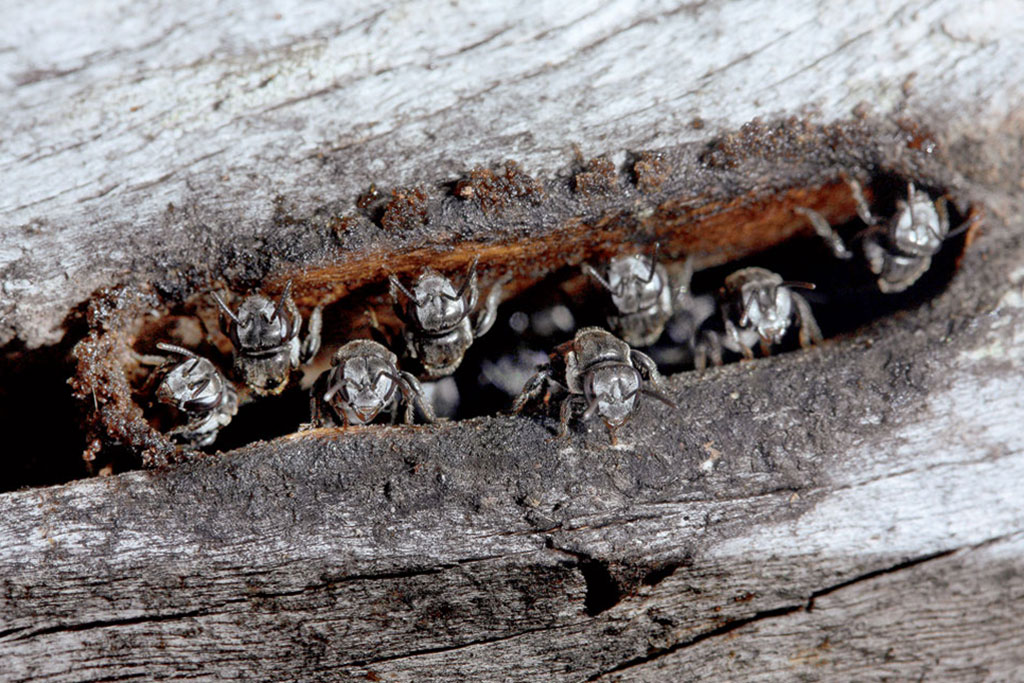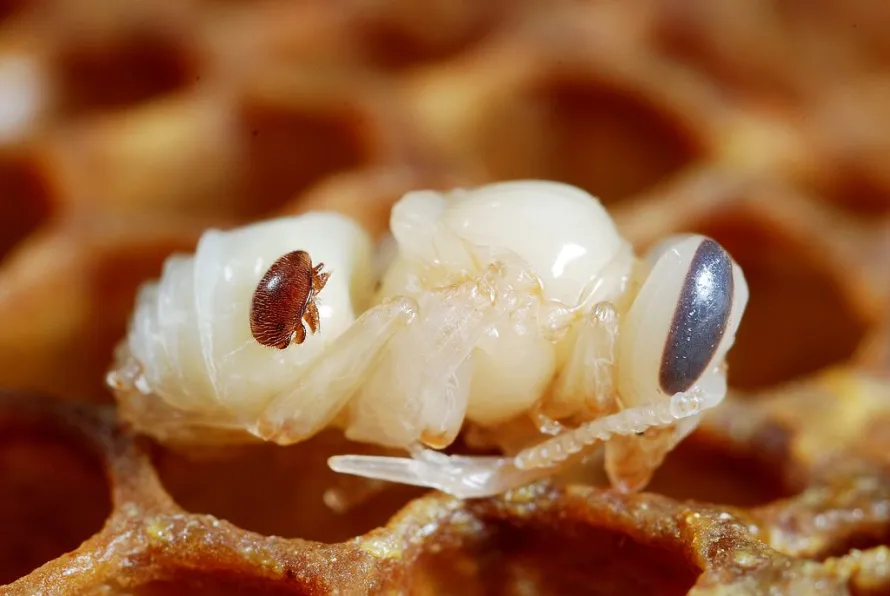
Coevolution
We are interested in how coevolutionary processes drive change at a variety of scales and systems, including coevolution between hosts and parasites, between plants and pollinators and between the different genomes of a eukaryotic cell.
Current projects in this space include:
- Host-parasite dynamics between honey bees, Varroa mites and viruses (Emily Remnant, James Damayo, Rebecca McKee)
- Mito-nuclear coevolution as a driver of speciation (Ros Gloag, Genevieve Law)
- Coevolution of hosts and their brood parasites (Ros Gloag)
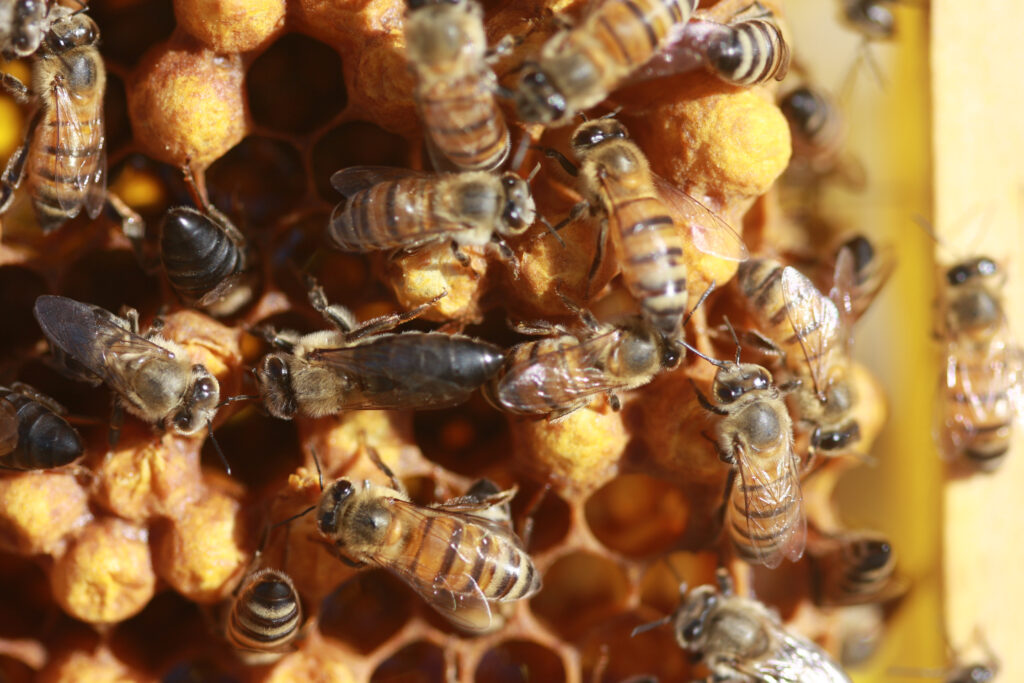
Bee health & breeding
Bees are vital to Australian food security, via their role as crop pollinators. Honey bees are also the basis of our honey industry. We work on a range of projects that aim to benefit Australian bees and the industries that rely on them.
Current projects in this space include:
- Discovery of Bee-friendly pesticides to control Varroa and small hive beetles (Emily Remnant)
- Bee-fungi interactions in Australian bees (Kenya Fernandes, Jasmin Li, Ros Gloag)
- Plan Bee: A sustainable national genetic improvement program using innovative breeding technologies (Nadine Chapman)
- Antiviral immunity in honey bees (Emily Remnant)
- Parasites and propogation of stingless bee colonies (Ros Gloag)
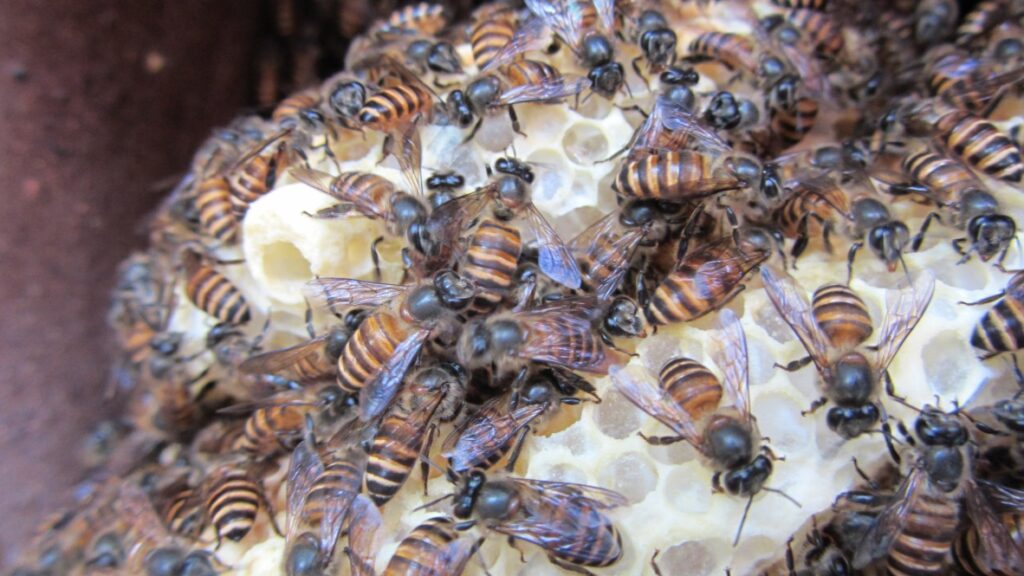
Invasive species: ecology and biosecurity
Invasive species can cause havoc to native ecosystems. They are also sometimes powerful systems for understanding how populations rapidly adapt to new environments or new hosts, how they overcome genetic bottlenecks or other population genetic constraints, and how they respond to new pathogens.
Current projects in this space include:
- Impact of invasive parasites on the viral landscape of honey bees (Emily Remnant)
- Ecology and evolution of invasive Asian honey bee (Apis cerana) in Far North Queensland and other parts of the Austral-Pacific (Ros Gloag)
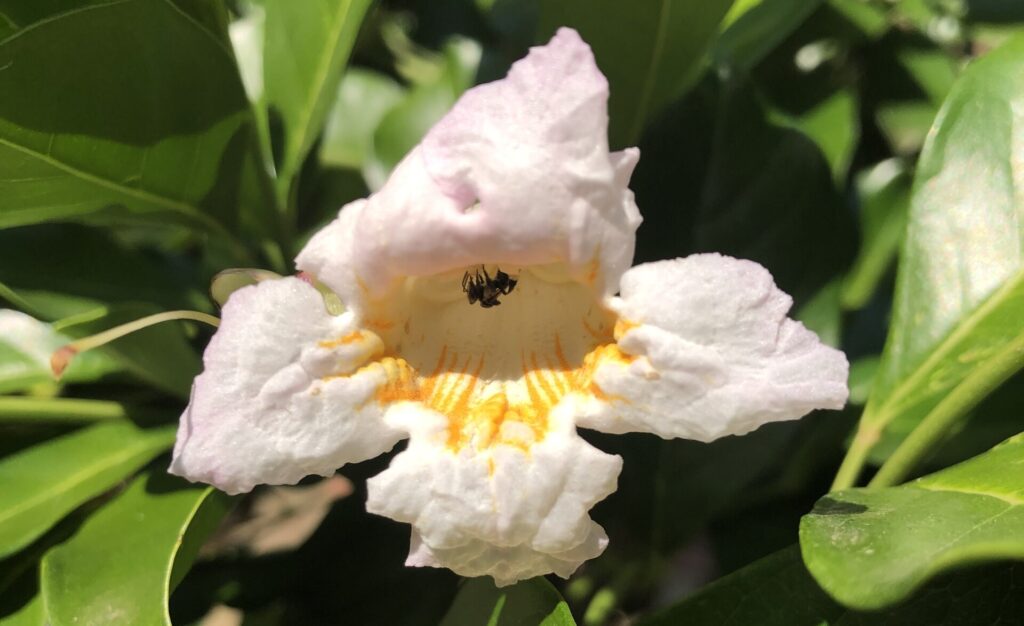
Bees as pollinators
Bees are essential pollinators in natural ecosystems as well as agricultural ones. Conserving Australia’s wild bee populations is therefore essential for conserving biodiversity more broadly. Australia’s bees also provide amazing opportunities to better understand pollination ecology, the evolution of pollinator behaviour and the response of insects to environmental change.
Current projects in this space include:
- Adaptation and response of Australian native bees to climate change (Ros Gloag)
- The evolution of generalist pollination systems in Australian native flora (Ros Gloag, Georgie Brennan)
Publications
To see publications from the lab, visit the relevant Staff Profile or Google Scholar pages: see People tab.

